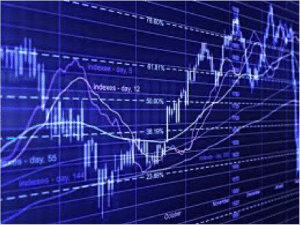 This phrase is one that will certainly strike fear into most, as our minds drift back to the 2008 financial crisis, when the U.S. and global economy seemed to be jumping off a continuous cliff, leaving all citizens uncertain of the future. However, it is important to understand that economic contractions are a healthy (although painful) necessity for our global economy. It’s also crucial to understand what is coming in the near team, so that we can be fully prepared.
This phrase is one that will certainly strike fear into most, as our minds drift back to the 2008 financial crisis, when the U.S. and global economy seemed to be jumping off a continuous cliff, leaving all citizens uncertain of the future. However, it is important to understand that economic contractions are a healthy (although painful) necessity for our global economy. It’s also crucial to understand what is coming in the near team, so that we can be fully prepared.
Debt/Economic Cycles
A major current trend, as discussed above is the fact that economies always run in cycles involving contractions and expansions. As of now the U.S. is approaching a record long expansion of 6-7 years since the previous recession in 2008-09. The longest expansion was the expansionary period between 1991-2001. This current period of growth has been painfully slow as shown by GDP growth rates of ~2.5% vs. average expansionary growth rates closer to 3.5%. Economists fear that our next recession will partially be a result of the Federal Reserve’s abnormally cautious monetary policy, as they have lifted interest rates more slowly than ever before in history. A need to rapidly raise rates at some point has potential to spark a significant economic contraction.
China
China, now standing as a $10 trillion economy, is seen by many economists to be at a fearful transition point, as the country has seen rapid levels of growth in GDP that are predicted to be unsustainable into the near future. Debt-to-GDP level, a major economic indicator, has reached unhealthy levels since 2014 at 200%. In simple terms, if these debt levels eventually become too high to be paid back to creditors, the Chinese economy will more than likely enter a period of contraction.
Student debt levels
As of Q1 2016 there were roughly 43 million American in repayment of just over $1.3 trillion in student debt. Although this statistics sounds scary on its own, the real issue is that ~eight million of those students are defaulting on those loans. As tuition costs continue to rise, lenders, students, or the government will have to take the burden of these costs, and regardless, the economy will experience some negative volatility as a result.
Central Bank Actions
Central Banks by definition are not typical banks that you may obtain a mortgage from; they are in basic terms the financial arm of national governments. (The U.S. central bank is called the Federal Reserve, and the central bank in Europe is called European Central Bank, tricky names) In recent times, these and other central banks have had more of an impact on their respective economies than historically, by essentially controlling the money that enters and runs through their economies, and by controlling the cost of money through interest rates. The bottom line: in the U.S. especially, real economic movement will overhaul any stimulation the Federal Reserve may have short-term, and a late reaction to the real economic picture would likely lead to a recession of sorts.
Uncertainty in Europe
Europe has seen economic issues recently. Lagging growth rates in Italy, Spain, France, Greece (especially Greece) and others, although not prompting any immediate global fears, can eventually lead to issues in the U.S. because many countries in Europe are major trading partners with U.S. firms (read up on exports and imports, perhaps a future article topic)
How this impacts the individual investor
Hopefully the obvious advantage in being aware of the global economies current state is that one can prepare from a financial standpoint. Although the majority of this article has been focused on negativity, the most significant take-away is a positive and simple point; Understand that as deep into recession as an economy falls, there is a very high chance that the economy will re-bound, even if slowly. This means thinking rationally if one happens to lose their job, or remaining in the stock market when stocks are on a downturn. Remember, that economies run in cycles, and stay positive. The next recession will only be short term.







